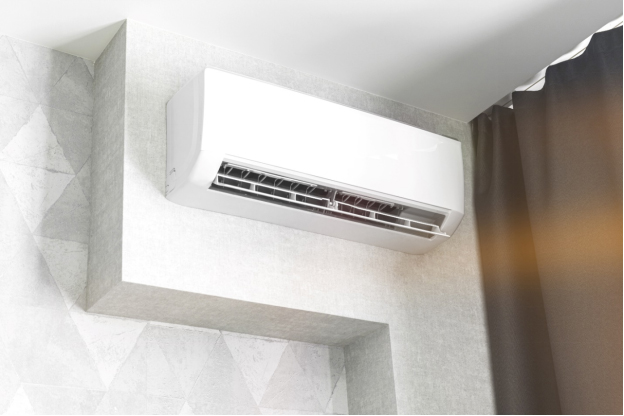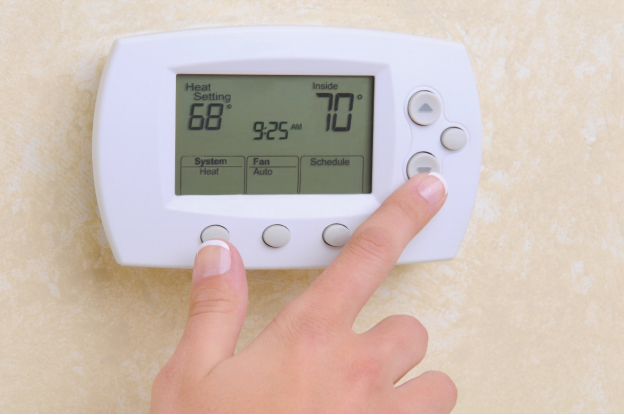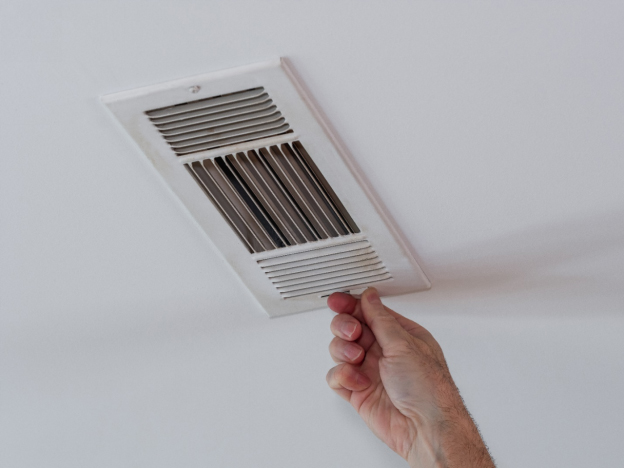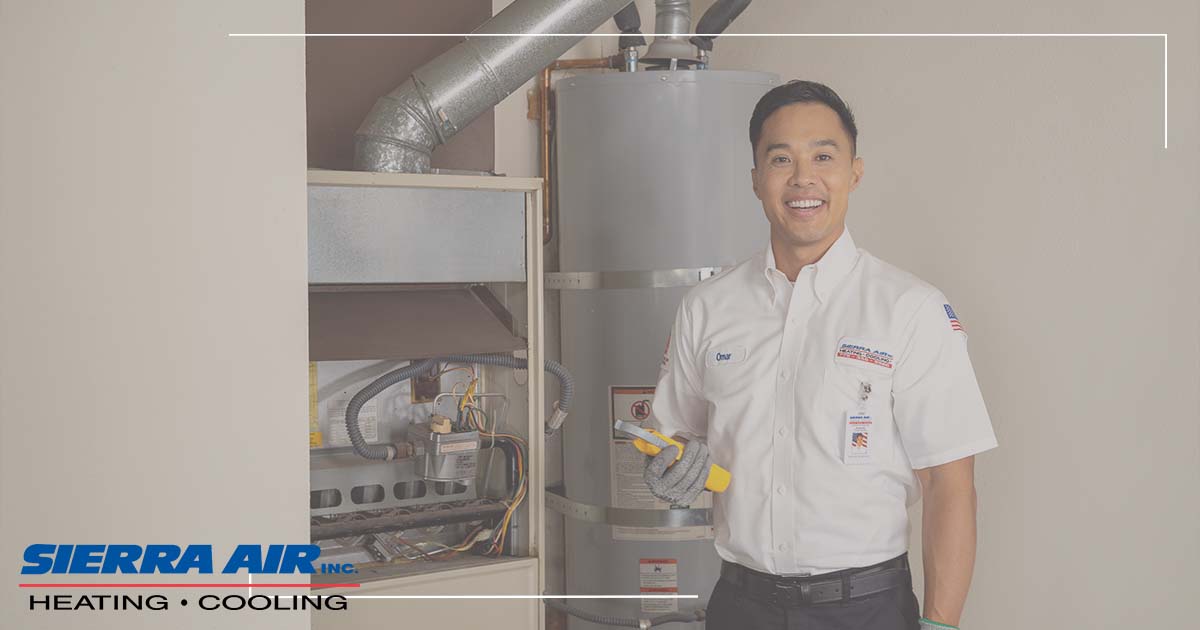Energy efficiency and sustainability are at the forefront of many homeowners’ minds. Modern HVAC systems are more energy efficient than ever, keeping your home comfortable with a lower environmental impact – and lower energy bills.
If you’re looking to upgrade your home’s HVAC system, here are some of the most energy-efficient HVAC and heat pump options to ensure you’re creating a comfortable and eco-friendly home.
Key Takeaways:
- There are plenty of options for modern energy-efficient HVAC systems, including mini-split HVAC and heat pumps.
- If you’re not ready to upgrade, you can make small changes to make your current system more efficient.
High-Efficiency Heat Pumps
Heat pumps are a great alternative to traditional heating and cooling systems. They work by transferring heat from one area to another, depending on the season, to keep your home at the optimal temperature.
In winter, heat pumps extract heat from the outside air – even in cold temperatures – and transfer it into your home to supply warm air. In the summer, the process is reversed to remove heat from your indoor air and release it outside.
High-efficiency heat pumps have numerous benefits, including:
- Energy savings:Heat pumps use electricity to transfer heat instead of generating it, so they’re more energy efficient than conventional heating systems that rely on fuel.
- Dual functionality:Heat pumps provide heating and cooling within a single system, eliminating the need for two separate heating and cooling units to purchase, install, and maintain.
- Reduced carbon emissions:Heat pumps use electricity and do not burn fossil fuels, so they have lower carbon emissions and contribute to a healthier environment.
- Year-round comfort:Because heat pumps have both heating and cooling, they can maintain a comfortable indoor temperature all year, no matter the weather changes.
Geothermal Heat Pumps
Geothermal heat pumps, which also go by ground-source heat pumps, use the stable temperature of the earth to provide heating and cooling. They rely on pipes that are buried deep underground to exchange heat, extracting it in winter and releasing it in summer.
The benefits of geothermal heat pumps include:
- High efficiency:Geothermal heat pumps can achieve high levels of efficiency, as they utilize the earth’s natural heat source.
- Renewable energy source:The earth’s temperature is a renewable and sustainable energy source, making geothermal heat pumps environmentally friendly.
- Long lifespan:Geothermal heat pumps have a longer lifespan compared to traditional HVAC systems with proper maintenance.
- Lower operating costs:Geothermal heat pumps can save you a lot on your energy bills over their lifetime.
Ductless Mini-Split Systems
Ductless mini-split systems are versatile and energy-efficient heating and cooling systems that don’t require ductwork. They use an outdoor unit connected to one or more indoor units that are installed in different rooms or zones, so they’re ideal for homes without existing ductwork or renovations.

The benefits of ductless mini-split systems include:
- Energy savings:Ductless mini-split systems avoid the energy losses that are often associated with ductwork, creating better efficiency.
- Zoned heating and cooling:Each indoor unit operates independently, allowing zoned heating and cooling and more personalized comfort for each family member.
- Easy installation:Ductless systems are easier to install than traditional HVAC systems with ductwork, reducing installation time and cost.
- Improved indoor air quality:Ductless systems have multi-stage filtration that filters out dust, allergens, and pollutants to improve indoor air quality.
Variable Refrigerant Flow (VRF) Systems
A VRF system, which also goes by a variable refrigerant volume (VRV) system, is an advanced HVAC system that offers precision control over heating and cooling in each room – or zone. These systems rely on a single outdoor unit that connects to multiple indoor units.
There are many benefits to VRF systems, including:
- Energy efficiency:VRF systems adjust the refrigerant flow to match the exact heating and cooling demands of each zone, reducing energy waste.
- Zoned comfort:Different areas or rooms can be set to different temperatures based on preferences and occupancy to maximize comfort.
- Simultaneous cooling and heating:VRF systems can simultaneously cool some areas while heating others for efficient temperature control.
- Quiet operation:VRF systems are quieter than other systems, so they’re ideal for environments that are sensitive to sound, such as homes with infants.
Ways to Improve Your HVAC Efficiency
If you’re not ready for a full upgrade, small changes to your existing system can make a big difference in your home’s energy use.
Programmable Thermostats
Programmable thermostats allow you to adjust home heating and cooling equipment according to a pre-set schedule. For example, a programmable thermostat could be set to maintain a home temperature of 72°F during the day and 65°F at night. Another option is to set the temperature lower during the day while you’re at work and set it to warm your home shortly before you return.

Smart thermostats take the capabilities of a programmable thermostat a step further by learning your patterns and preferences to keep the temperature perfect at all times. As the system adjusts to your usual routine, it becomes more intuitive in automatically changing the temperature.
The benefits of smart and programmable thermostats include:
- Energy savings:Smart and programmable thermostats offer more precise temperature control and scheduling to optimize your heating and cooling based on your preferences and routine.
- Improved zoned temperature control: You can adjust a programmable thermostat to keep rooms at different temperatures according to your preferences.
- Less stress on your HVAC:Programmable thermostats ensure that your system isn’t overworking round the clock, causing less wear and tear over time.
- Remote access:You can control your HVAC system from anywhere using a smartphone app, even if you’re not home.
- Automatic adjustments: Smart thermostats learn your routine and preferences to adjust temperature automatically.
Seal Air Leaks and Insulate Your Home
Any ductwork that runs through the unconditioned areas of your home, such as the basement or attic, need to be properly sealed to prevent conditioned air from leaking out. Small leaks are difficult to spot, so it’s best to hire a professional HVAC technician for HVAC and heat pump maintenance.
The common sources of insulation issues include:
- Ductwork
- Windows and doors
- Attics and basements
Change Air Filters
Air filters keep household dust and debris from getting into your HVAC system and circulating through your home, harming your indoor air quality. These filters become clogged with dust and dirt over time, however, which can obstruct airflow. This also makes your system work much harder to circulate warmed air.
The simple task of changing your air filter can go a long way toward improving your HVAC system’s performance. Though you may need to change yours more or less often, the general recommendation is about every three months. If you’re not sure what’s appropriate for your system, ask your HVAC technician.
Open Air Registers
Your HVAC system needs to be open and unobstructed to circulate air around your home. If you have furniture or décor in front of your air registers, the air is unable to flow freely into your home. Dust and dirt will accumulate on the cover as well.

Make sure your air registers are open and clean. Avoid putting furniture or décor in front of them that can impede airflow as well.
Consider Supplemental Heat Sources
Some homes can rely on an HVAC system for whole-home heating, but others may benefit from relieving the stress on the HVAC system with supplemental heating sources. For example, using a fireplace or wood stove can help heat large areas like the living room, dining room, or great room, especially if it’s unusually cold.
Space heaters can also be helpful for warming specific rooms instead of leaving the extra work to your HVAC system. If you want more luxury, radiant floor heating keeps your hardwood or tile floors cozy all year. You may want to install radiant floor heating in just a few rooms or your whole house.
Clear Your Condensate Drain Line
The location of your drain line can vary depending on your HVAC system, but most are located just underneath the inside unit or the outside condenser unit of your system. If you have air conditioning problems, it’s likely due to clogged drain lines.
It’s important to check the drain line and clean it occasionally to ensure your unit can operate as efficiently as possible. This not only helps your system now, but it can prevent major problems in the future. This is a task you can do on your own, but if you’re not comfortable, be sure to contact an HVAC professional.
Schedule Preventative Maintenance
No matter how efficient your system is, that won’t last if you don’t take care of it. Preventative maintenance is one of the most important aspects of protecting your HVAC investment and keeping it safe and efficient.

Though these tips are good for keeping your HVAC system maintained in between tune ups, scheduling a routine inspection, cleaning, and maintenance visit from a professional HVAC technician can ensure that minor problems don’t grow into more expensive ones.
Do you need an HVAC upgrade or maintenance?Contact us at Sierra to schedule your appointment!


